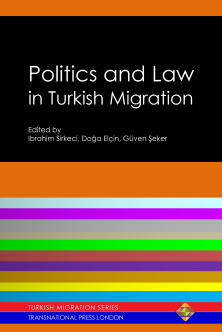After the Hamburg Cell: the Integration Debate and Turkish-German Representation in Post-9/11 Media and Politics
After the Hamburg Cell: the Integration Debate and Turkish-German Representation in Post-9/11 Media and Politics
Author(s): Emily Joy Rothchild
Subject(s): Politics, Media studies, Islam studies, Migration Studies, Politics and Identity
Published by: Transnational Press London
Keywords: Turkey; Germany; political representation; Post-9/11; media; politics; Hamburg Cell; Muslim;
Summary/Abstract: On 11 September 2001, hijacked planes struck the World Trade Center, the Pentagon, and a Pennsylvania field. The attacks horrified people worldwide, but German reactions were especially complicated; politicians and citizens needed to process the failed macro-political integration of the Hamburg cell, four 9/11 conspirators who met and organized at Al-Quds Moschee (mosque). Just one year prior in 2000, citizenship law reform changed the idea of who could be German, one that now included the country’s Turkish-German population. Though none of the Hamburg cell members were Turkish, 9/11’s temporal closeness to citizenship law reform and the resultant collusion of “Turk” and “Muslim” in media and political discourse resulted in continuing negative media representation of Turkish-Germans.
Book: Politics and Law in Turkish Migration
- Page Range: 93-104
- Page Count: 12
- Publication Year: 2015
- Language: English
- Content File-PDF

